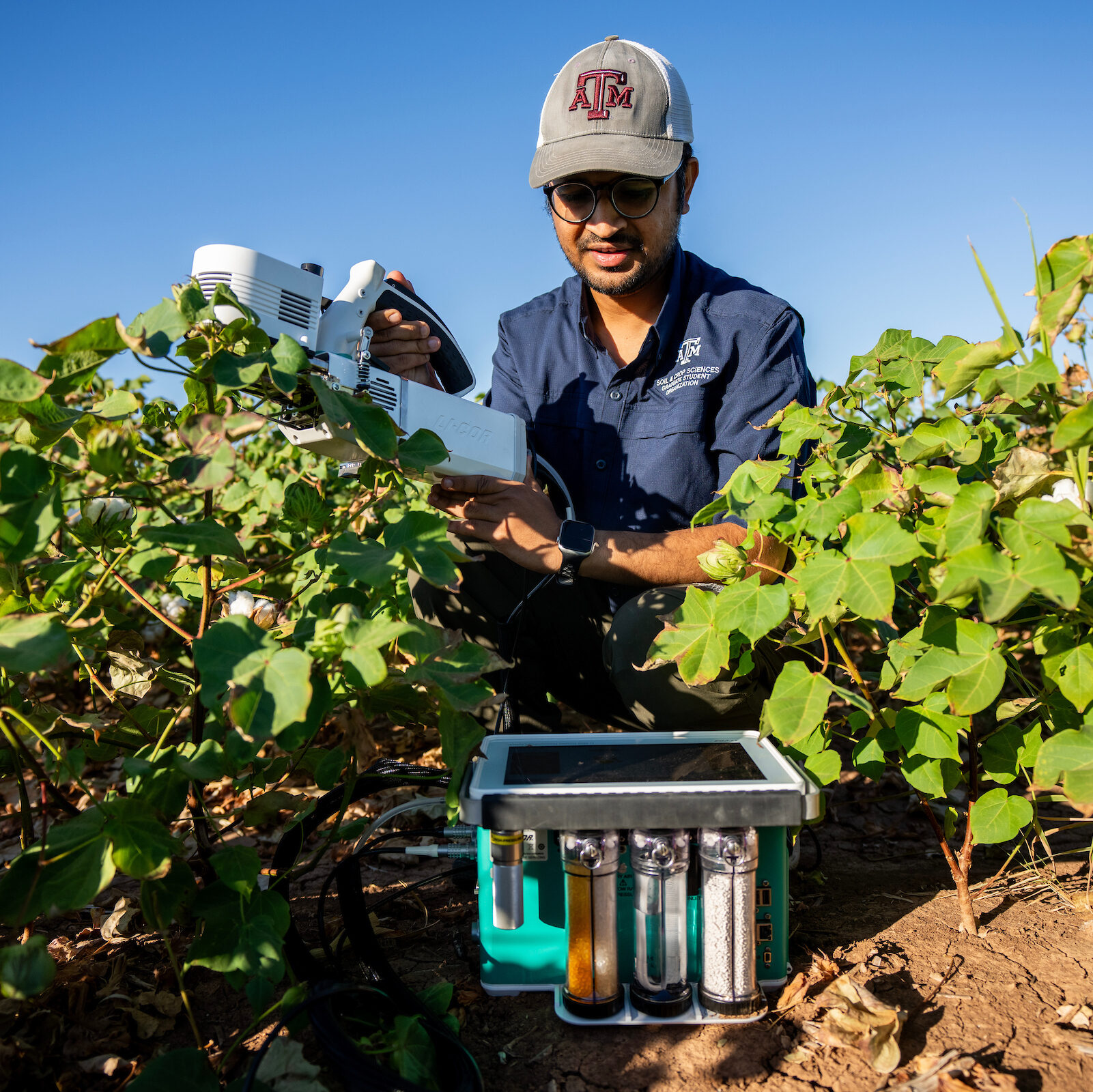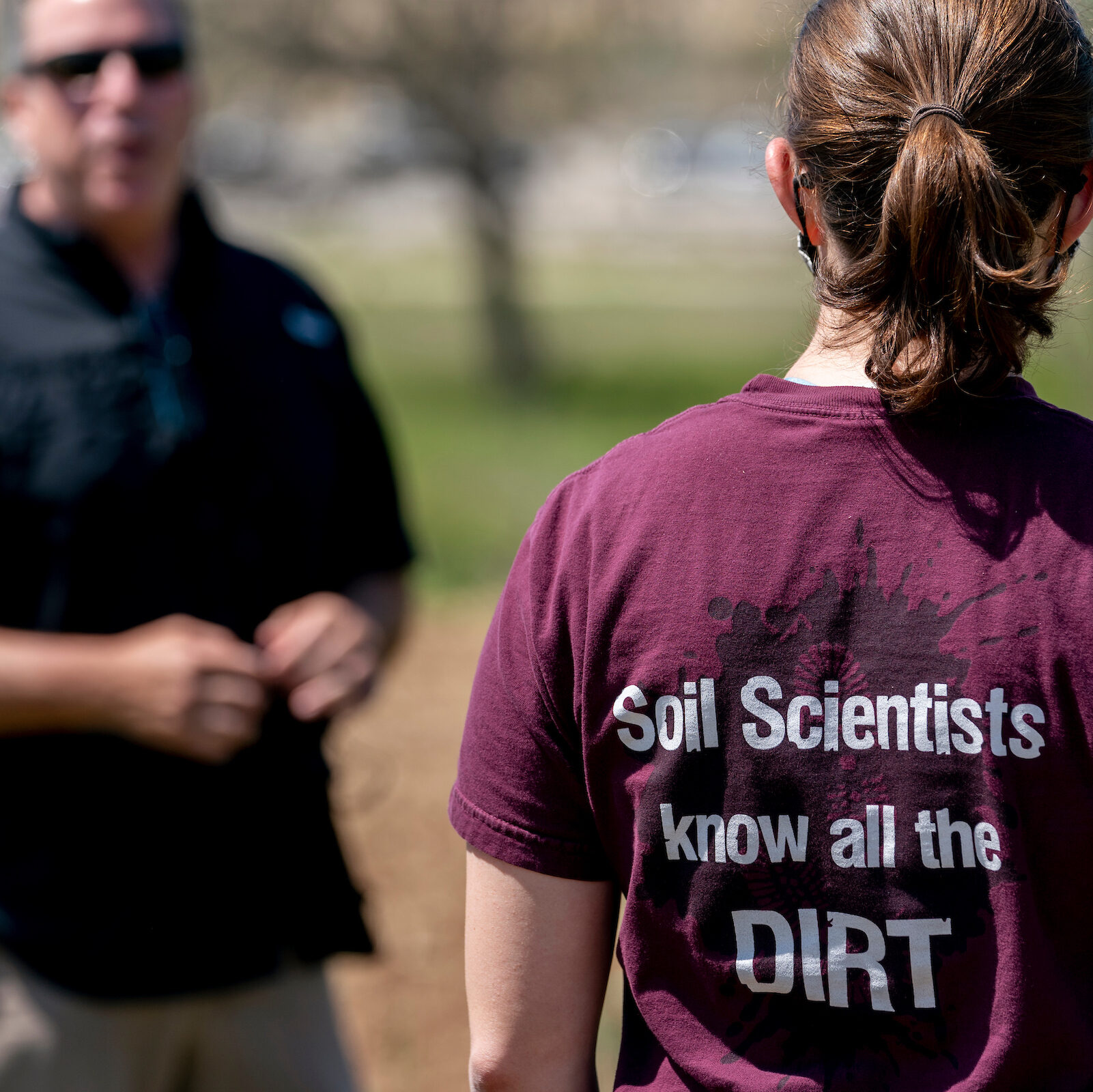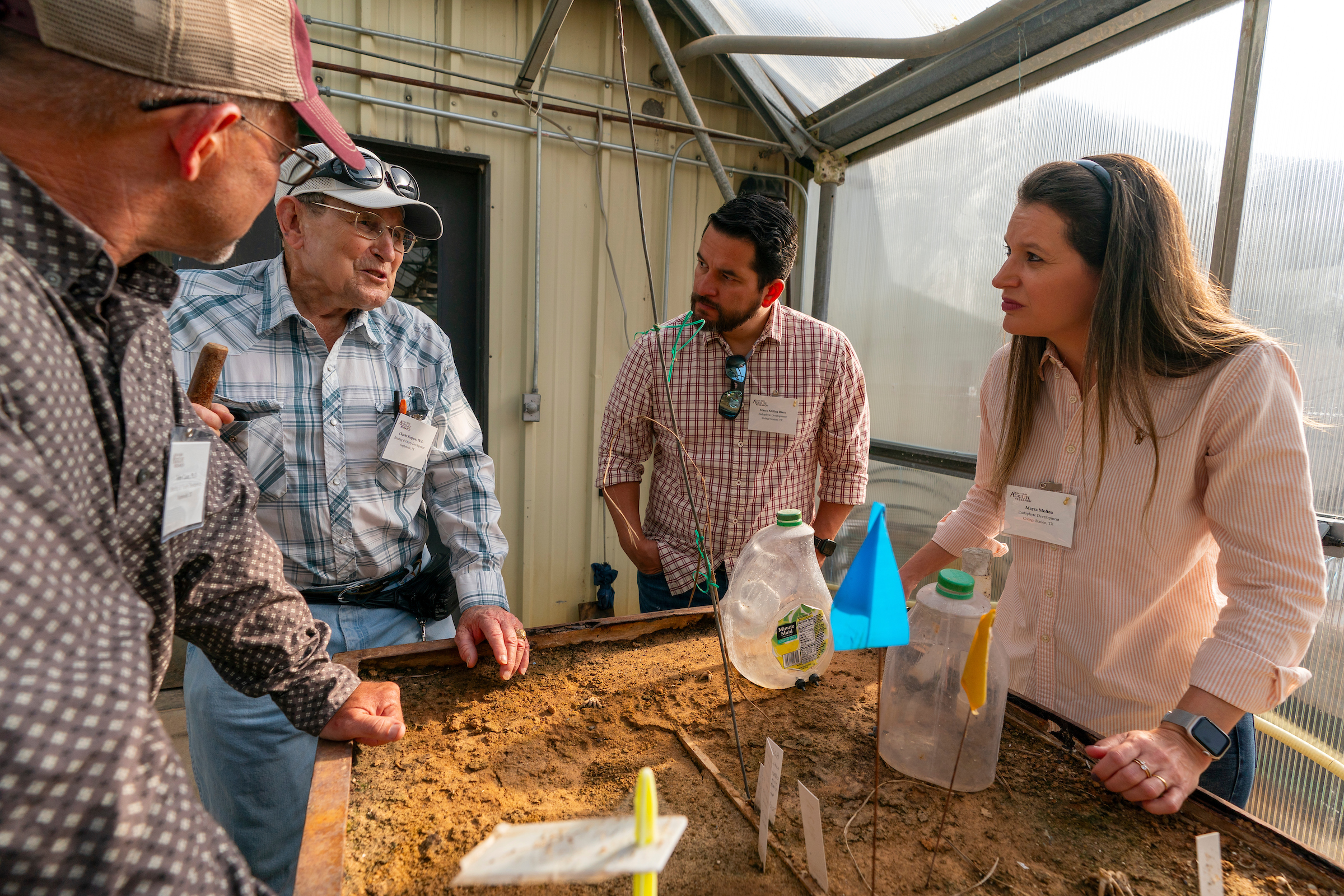
Degrees and Programs
The Soil and Crop Sciences Department is one of the largest such departments in the nation and is preeminent throughout the world. Our world-famous faculty has a presence in every county in Texas. Working in partnership with Texas A&M AgriLife Research and the Texas A&M AgriLife Extension Service, their goal is to conduct research through trials and experimentation and then transfer that new knowledge to the public.
We offer Bachelor of Science degrees in Plant and Environmental Soil Science and Turfgrass Science. Students can earn a Master of Science and a doctorate in agronomy, Food Science and Technology, Genetics, Molecular and Environmental Plant Sciences, Plant Breeding, and Soil Science. Most of our undergraduates are from Texas, but students represent some 20 different countries in addition to the United States.

Undergraduate Degrees
Specialized Programs
Undergraduate Minor Programs
In addition to their core studies, soil and crop sciences students often have the opportunity to pursue minors in related fields such as environmental science, sustainable agriculture, plant genetics, or agricultural business management to enhance their expertise and career prospects.
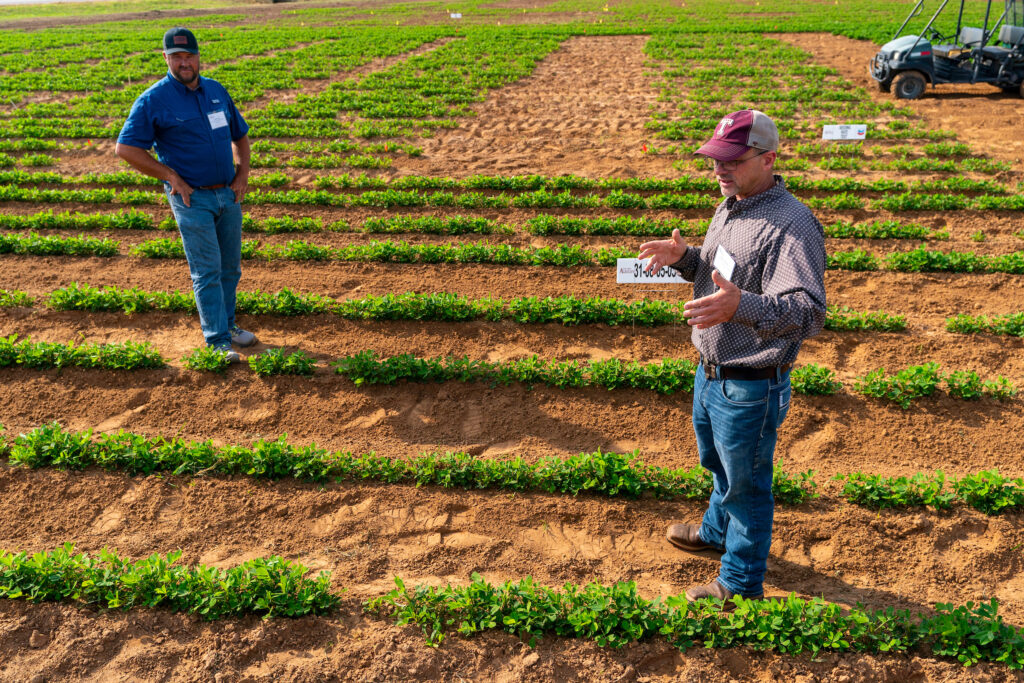
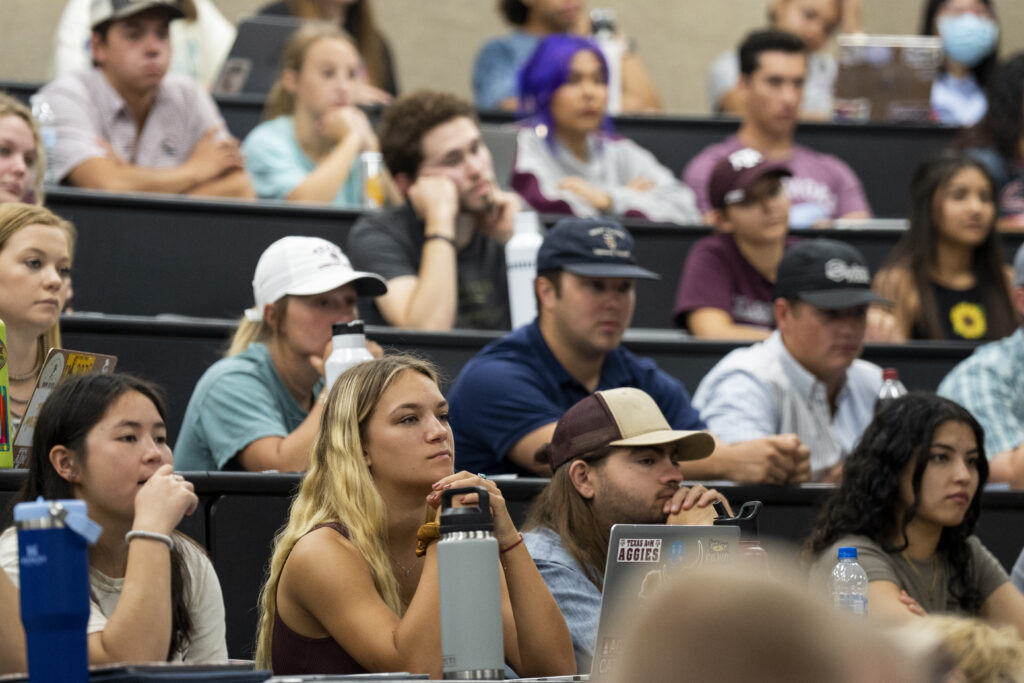
Student life at Texas A&M
Join future natural resource professionals who think outside the box, with the support of a dedicated, close-knit faculty and staff backing them every step of the way.
Have Questions?
For degrees or admissions questions:
For general questions:
